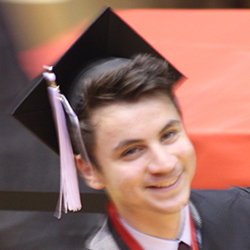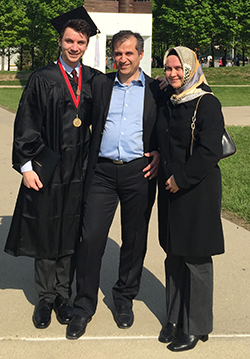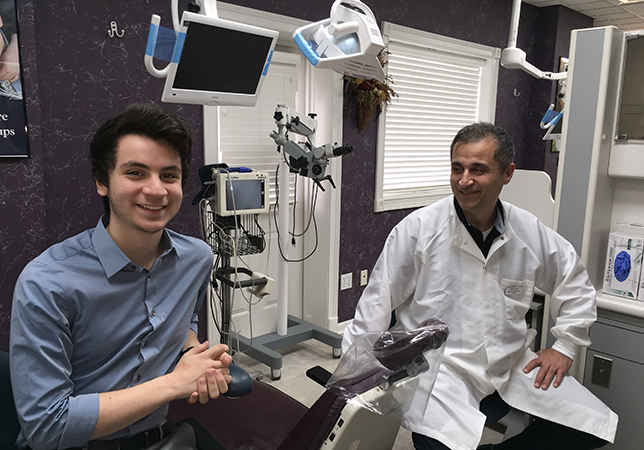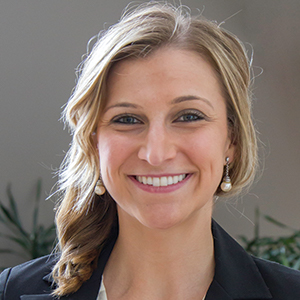Teenage college grad is determined to help others
Last spring, at the age of 17, Ismail Gunacar graduated from the University of Cincinnati with a degree in biochemistry. Gunacar started taking college classes when he was 13, and according to UC, is the second-youngest student ever to earn a bachelor’s degree from the university.
 Ismail Gunacar
Ismail Gunacar
Gunacar moved with his family from his native Turkey to Cincinnati when he was 5 years old and says it was his passion to help others and his exuberant love of learning that powered him through advanced coursework at such a young age. Known to friends and family as “Ish,” Gunacar says he is “taking a break” after his senior year. So far during this break he’s studied for and taken the MCAT, applied early decision to UC’s medical school, and celebrated his eighteenth birthday.
Our interview with him has been edited for length and clarity.
When did you know you wanted to pursue more advanced school work?
It got to the point where, in middle school, it was just not challenging anymore … I was already looking up higher level math concepts for myself just out of pure interest. One of my dad’s friends is a professor, and he told us about the Postsecondary College Credit Plus program (now called the College Credit Plus program), and I thought it would be pretty good for me … I took some placement exams at the University of Cincinnati Blue Ash College. I applied to that program, and I placed into calculus just from studying myself. And that was sort of like the first door … After that, I just sort of branched out, started looking more into sciences and stuff.
What did your parents think about all this?
My parents have always been very supportive. My dad always has emphasized the importance of education. Ever since I was little, probably his biggest advice was “Make sure you really pay attention. Make sure education is the most important thing.” The power behind knowledge is his biggest piece of advice to me.
 Gunacar poses for a graduation photo with his father, Guy Gunacar, and mother, Aygen Gunacar, at the University of Cincinnati.
Gunacar poses for a graduation photo with his father, Guy Gunacar, and mother, Aygen Gunacar, at the University of Cincinnati.
What was it like to be so much younger than your classmates at UC Blue Ash?
I always tell this story, and it’s quite funny. My mom actually led me to the class. The professor was kind of shocked, like, “Are you the student? Or he’s the student?” And my mom told him, “He’s the student; I’m just dropping him off.” Once I started getting more comfortable starting up conversations, some of my friends would tell me, “You know, Ish, the first time that you sat down in that class, I thought that you had a parent or something – your mom or something was taking a class and she couldn’t find a babysitter.”
Did you ever find it challenging to be in a different age range?
Not at all. The community of University of Cincinnati and especially the Blue Ash Campus – I’m so thankful to them. It’s such a warm community there. Everybody just adopted me as their younger brother.
What inspired you to study biochemistry?
I sort of got to biochemistry by just exploring different things … But eventually I started looking at DNA and big macromolecules. Lipids are very interesting to me. Nucleotides, proteins, amino acids — just very interesting stuff. I would go past the required reading a lot of times, and I just stuck with it.
What was it like working in the lab?
Of course, I have to thank University of Cincinnati again for that, especially Dr. Pat Limbach. They were very supportive, very trusting in my abilities. They saw my potential, and he let me come and work in his lab, and it was a phenomenal experience … just being in there, working in the lab … was a huge advantage for me.
How did it feel to graduate from college at 17?
My last year was the freshman year of the kids that I grew up with, so I was in college my senior year with all of my old friends. It was a very different experience to interact with people my own age. I had to graduate while they get to continue on and just have fun together. But I definitely don’t regret it. Some people say that I won’t ever experience the true college experience, but I think that I did really, because I got very involved. I was on campus a lot of the time. My first three or four years, I couldn’t even get off campus until my mom picked me up, because I couldn’t drive, so I definitely did get a college experience … I got to experience something that I think very few people have ever experienced. I’m very thankful for that. I wouldn’t change anything.
Why did you choose med school?
My father has always been a person that I looked up to. He’s a dentist, and just seeing him work, seeing how he interacts with patients, his character, his integrity were very inspiring to me, so I always had that health care idea in my head. Then volunteering in hospitals, volunteering in schools, tutoring, trying to help the community as much as I could and shadowing doctors, I really developed the passion that I really do want to do medicine instead of anything else.
What lies ahead for you?
The biggest goal is to get into medical school, and the long-term goal is to graduate. I think I’d be 22 at that point, so I guess that’d make me pretty young. I don’t know the exact standing, but that’d make me a pretty young MD.
What do you do when you’re not studying?
Work isn’t really work to me … because it’s very enjoyable. I really do like doing all the things that I do, whether it is studying or learning or doing research or my hobbies. My whole life is free time that I’m really enjoying.
 Ismail and his father, Guy Gunacar, in his father’s dental office in Ohio.
Ismail and his father, Guy Gunacar, in his father’s dental office in Ohio.
Enjoy reading ASBMB Today?
Become a member to receive the print edition four times a year and the digital edition monthly.
Learn moreGet the latest from ASBMB Today
Enter your email address, and we’ll send you a weekly email with recent articles, interviews and more.
Latest in People
People highlights or most popular articles

Kiessling wins glycobiology award
She was honored by the Society for Glycobiology for her work on protein–glycan interactions.

2026 ASBMB election results
Meet the new Council members and Nominating Committee member.

Simcox wins SACNAS mentorship award
She was recognized for her sustained excellence in mentorship and was honored at SACNAS’ 2025 National Conference.

From humble beginnings to unlocking lysosomal secrets
Monther Abu–Remaileh will receive the ASBMB’s 2026 Walter A. Shaw Young Investigator Award in Lipid Research at the ASBMB Annual Meeting, March 7-10 in Washington, D.C.

Chemistry meets biology to thwart parasites
Margaret Phillips will receive the Alice and C. C. Wang Award in Molecular Parasitology at the ASBMB Annual Meeting, March 7-10 in Washington, D.C.

ASBMB announces 2026 JBC/Tabor awardees
The seven awardees are first authors of outstanding papers published in 2025 in the Journal of Biological Chemistry.

